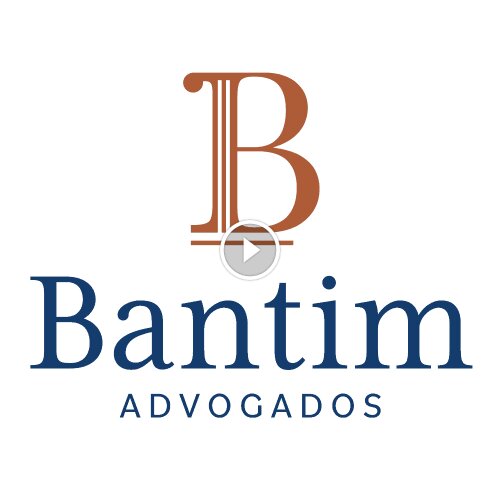Best Banking & Finance Lawyers in Sao Paulo
Share your needs with us, get contacted by law firms.
Free. Takes 2 min.
List of the best lawyers in Sao Paulo, Brazil
About Banking & Finance Law in Sao Paulo, Brazil
Banking and finance law in Sao Paulo, Brazil, centers around the rules, regulations, and practices that govern the interactions between financial institutions, businesses, and individuals. As the largest financial hub in Latin America, Sao Paulo hosts a wide range of domestic and international banks, fintech companies, investment firms, and other financial entities. The legal framework is heavily influenced by both federal laws and regulatory agencies such as the Central Bank of Brazil and the Brazilian Securities and Exchange Commission. These laws oversee activities such as lending, deposits, investment products, securitizations, acquisitions, regulatory compliance, and dispute resolution in the financial sector.
Why You May Need a Lawyer
There are several everyday situations where legal assistance is vital in banking and finance in Sao Paulo. Individuals may encounter issues with loan agreements, debt restructuring, overdraft fees, or fraudulent activity. Businesses may need guidance on securing financing, negotiating with investors, drafting compliance policies, or dealing with regulatory audits and investigations. International investors and companies often seek legal help navigating cross-border transactions, currency controls, tax structuring, and contractual matters involving Brazilian financial institutions. In all these cases, a specialist lawyer can ensure your interests are protected, contracts are fair and compliant, and your rights are upheld in case of disputes.
Local Laws Overview
Sao Paulo, as part of Brazil, follows a robust legal system for banking and finance regulated mainly at the federal level. Key aspects include:
- Central Bank Oversight: The Central Bank of Brazil (Banco Central do Brasil or Bacen) regulates banking operations, licenses institutions, and monitors compliance with financial regulations.
- Law No. 4,595/1964: Establishes the National Financial System, frameworks for monetary policy, credit, and banking regulation.
- Securities Regulation: The Securities and Exchange Commission (CVM) regulates public offerings, investment funds, and securities markets.
- Brazilian Civil Code and Consumer Law: Offer protection in financial dealings, particularly for consumers.
- Data Protection: The General Data Protection Law (LGPD) impacts how banks and financial entities collect, process, and store personal data.
- Anti-Money Laundering Laws: Require due diligence, reporting, and compliance from financial institutions.
- Taxation: Financial transactions are subject to various taxes such as IOF (Tax on Financial Operations).
Due to the complexity of these laws and frequent updates, it is wise to consult a legal expert for tailored advice relevant to your needs.
Frequently Asked Questions
What are the main regulatory bodies for banking and finance in Sao Paulo, Brazil?
The Central Bank of Brazil (Bacen) and the Brazilian Securities and Exchange Commission (CVM) are the primary regulatory agencies overseeing financial institutions and securities markets across Brazil, including Sao Paulo.
Can foreigners open bank accounts in Sao Paulo?
Yes, foreigners can open personal and business bank accounts in Sao Paulo. Requirements include a valid passport, proof of Brazilian address, and a Brazilian tax identification number (CPF for individuals, CNPJ for companies).
What should I do if I encounter unauthorized transactions in my bank account?
You should immediately notify your bank to block your account and report the incident. If the bank fails to provide adequate assistance, you may file a complaint with consumer protection agencies or seek legal advice.
Are loans and financing agreements heavily regulated?
Yes, all loan and financing agreements are subject to strict rules regarding interest rates, disclosure of information, and consumers’ rights. They must comply with the Civil Code, Consumer Protection Code, and specific Central Bank regulations.
What protection do I have as a consumer in banking disputes?
Consumers are protected by Brazil’s Consumer Protection Code. This means banks must be transparent, fair, and provide adequate customer service. Disputes can be resolved through regulatory agencies, consumer protection bodies, or the courts.
What are the most common types of banking fraud in Sao Paulo?
Common types include phishing scams, ATM skimming, account hacking, and fraudulent investment schemes. All banks are required to implement measures to prevent, detect, and respond to such fraud.
How does the General Data Protection Law (LGPD) affect me as a bank customer?
LGPD gives individuals rights over their personal data. Banks must obtain your consent for data processing, inform you about data use, and protect your privacy.
What happens if I default on a loan or credit card?
If you default, you may face late fees, increased interest rates, and have your name added to credit protection registers (SPC or Serasa). Before taking legal action, banks often seek to negotiate payment plans.
Can I negotiate interest rates with banks in Sao Paulo?
Interest rates are often negotiable, especially for loans and mortgages. It is advisable to compare offers and negotiate directly with your bank, possibly with the assistance of a legal advisor.
Is it safe to invest in Brazilian financial markets as a foreigner?
Brazil has developed regulatory controls to ensure safe investments, but risks remain, especially due to market volatility and currency fluctuations. Legal guidance is encouraged for compliance and risk management.
Additional Resources
If you need information or assistance, these organizations and resources can be helpful:
- Central Bank of Brazil (Banco Central do Brasil): Offers guidance on regulations, complaints, and reporting issues with financial institutions.
- Brazilian Securities and Exchange Commission (CVM): Regulates the securities market, provides investor protection resources.
- National Consumer Secretariat (Senacon): Supports consumers in disputes with financial service providers.
- Federation of Banks (Febraban): Provides education and resources on financial services in Brazil.
- OAB (Brazilian Bar Association) Sao Paulo Section: Can refer you to qualified lawyers specializing in banking and finance.
Next Steps
If you require legal assistance related to banking and finance in Sao Paulo:
- Gather all relevant documents, such as contracts, statements, correspondence with banks, or court documents.
- Identify the specific issue, whether it is a consumer dispute, a regulatory question, debt collection, or international transaction guidance.
- Contact a lawyer who specializes in banking and finance law in Sao Paulo. You can find one through recommendations, professional directories, or the OAB Sao Paulo.
- Prepare a list of questions and objectives so your lawyer can provide efficient and tailored advice.
- Stay informed about your rights and obligations by confirming information with official regulatory bodies or your legal counsel.
Addressing banking and finance matters can be complex, but the right guidance will help you navigate the system with clarity and confidence.
Lawzana helps you find the best lawyers and law firms in Sao Paulo through a curated and pre-screened list of qualified legal professionals. Our platform offers rankings and detailed profiles of attorneys and law firms, allowing you to compare based on practice areas, including Banking & Finance, experience, and client feedback.
Each profile includes a description of the firm's areas of practice, client reviews, team members and partners, year of establishment, spoken languages, office locations, contact information, social media presence, and any published articles or resources. Most firms on our platform speak English and are experienced in both local and international legal matters.
Get a quote from top-rated law firms in Sao Paulo, Brazil — quickly, securely, and without unnecessary hassle.
Disclaimer:
The information provided on this page is for general informational purposes only and does not constitute legal advice. While we strive to ensure the accuracy and relevance of the content, legal information may change over time, and interpretations of the law can vary. You should always consult with a qualified legal professional for advice specific to your situation.
We disclaim all liability for actions taken or not taken based on the content of this page. If you believe any information is incorrect or outdated, please contact us, and we will review and update it where appropriate.
Browse banking & finance law firms by service in Sao Paulo, Brazil
Sao Paulo, Brazil Attorneys in related practice areas.










